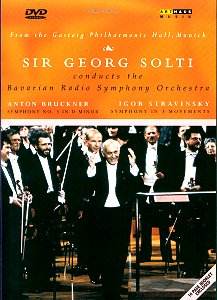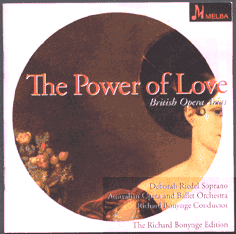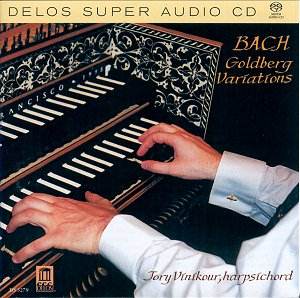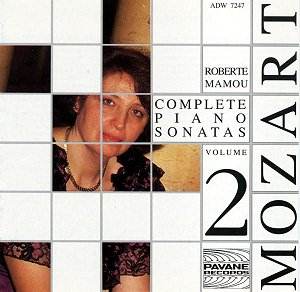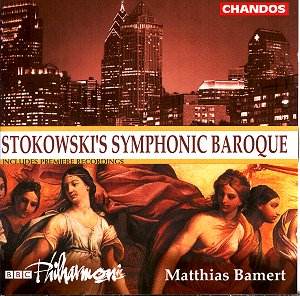 Composer: George Frideric Handel, Dietrich Buxtehude, Antonio Cesti, Henry Purcell, Tomas Luis de Victoria, William Byrd, Arcangelo Corelli, Christoph Willibald Gluck, Antonio Vivaldi
Composer: George Frideric Handel, Dietrich Buxtehude, Antonio Cesti, Henry Purcell, Tomas Luis de Victoria, William Byrd, Arcangelo Corelli, Christoph Willibald Gluck, Antonio Vivaldi
Works: Suite from The Water Music, Dead March from Saul, Sarabande and Courante, Tu mancavi a tormentarmi, crudelissima speranza, Suite, Jesus dulcis memoria, Pavane and Gigue, Adagio (from Violin Sonata Op. 5 No. 5), Sicilienne (from Armide), Concerto Grosso No. 11 in D minor (from Op. 3)
Performers: BBC Philharmonic Orchestra, Matthias Bamert (conductor)
Recording: 29/2 and 1/3/2000 in Studio 7, New Broadcasting House, Manchester
Label: Chandos CHAN 9930
Leopold Stokowski’s transcriptions have long served as a bridge between the Baroque and modern orchestral sensibilities, and this latest release from Chandos continues that tradition with a selection drawn from the works of several luminaries of the period. This compilation, featuring pieces from Handel to Vivaldi, encapsulates the essence of Baroque music while reframing it through an orchestral lens that highlights both its rhythmic vitality and melodic richness. The choice of repertoire not only showcases Stokowski’s interpretative flair but also offers listeners a delightful overview of the stylistic diversity of the Baroque era.
Matthias Bamert’s direction of the BBC Philharmonic is marked by a keen sensitivity to the underlying structures of the transcriptions. The orchestration is lush, particularly in the soaring strings and well-balanced woodwinds, which breathe life into Handel’s Suite from The Water Music. Here, the “Alla Hornpipe” bursts forth with vigor, although the horns’ exuberant whoops, while technically proficient, may lack the spontaneous exuberance one might anticipate from Stokowski’s own interpretations. This moment, emblematic of a broader issue, raises questions about the balance between precision and expressiveness in orchestral performance, particularly when revisiting the stylistic signatures of a conductor so renowned for his emotional depth.
The recording quality is exemplary, a hallmark of Chandos, capturing the nuanced dynamics of the orchestral palette with clarity. The sound engineering deftly navigates the challenges of presenting both the intimate and grandiose facets of Baroque music. For instance, the delicate interplay in Buxtehude’s Sarabande and Courante allows the listener to appreciate the textural intricacies, while Vivaldi’s Concerto Grosso No. 11 brims with vibrant energy, the articulation sharp and invigorating. The sonic landscape is inviting, drawing the listener into an aural experience that is as satisfying as it is enlightening.
Yet, one might observe a slight imbalance in the programming; the second half leans towards quieter, more contemplative works, which, while beautiful, can create a somewhat soporific effect when experienced in succession. This could be remedied by an intentional approach to “dipping” into the tracks, allowing for a more varied listening experience. The absence of some of Stokowski’s characteristic sonic splashes, particularly as found in his arrangements of Bach, may leave a yearning for those more exuberant moments, yet the interpretations here remain compelling and thoughtful.
This compilation stands as a fitting conclusion to Chandos’s series of Stokowski transcriptions, encapsulating the depth and richness of the Baroque tradition while inviting modern audiences to engage with its timeless beauty. Collectors of this series will find this release to be a worthy addition, preserving the integrity of Stokowski’s vision while celebrating the virtuosity of the BBC Philharmonic under Bamert’s baton. It is a recording that not only honors the past but also revitalizes it for contemporary listeners.
